15 Rules You Didn't Know ‘Claim to Fame’ Contestants Have to Follow (Exclusive)
- Oops!Something went wrong.Please try again later.
Executive producers Eric Detwiler and Scott Teti spoke with PEOPLE exclusively about the show’s extensive list of rules
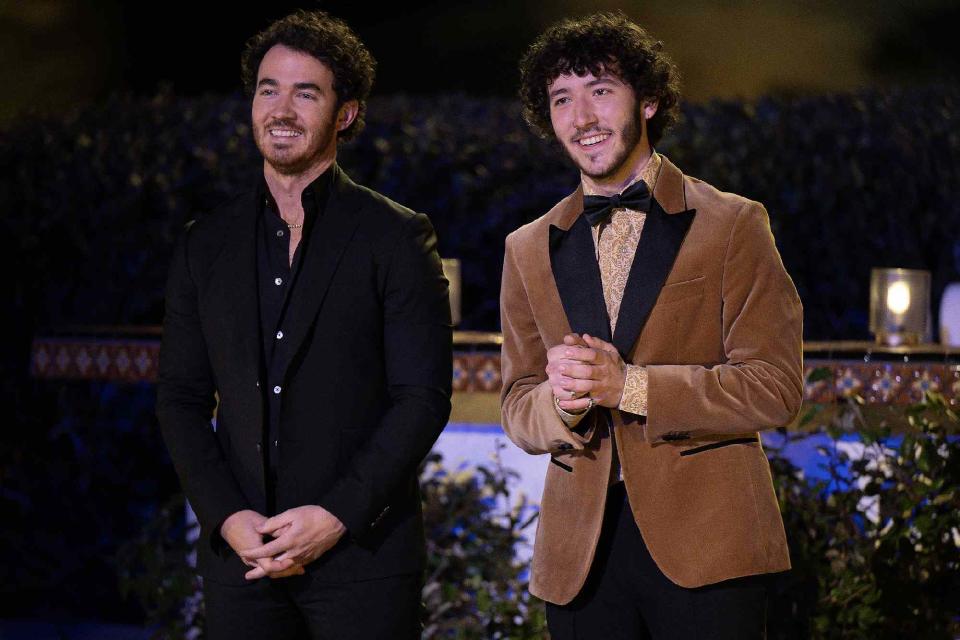
John Fleenor/ABC
Since ABC’s Claim to Fame is all about concealing your identity, it goes without saying there are quite a few rules contestants have to follow.
The series, which first premiered in July 2022, follows 12 contestants who each have a famous relative. As they film the series all under one roof, they are tasked with uncovering everyone else’s identities while trying to keep their own a secret.
Though they are pretty much disconnected from the outside world while filming, making it even harder to research their competition, they have the help of various games and a huge clue board in the house to help them decipher clues.
Executive producers Eric Detwiler and Scott Teti spoke with PEOPLE exclusively by email about the show’s extensive list of rules, including ones contestants have to follow before competing and one they have to follow after they’re eliminated.
Read ahead to learn more about the rules Claim to Fame contestants have to follow.
Warning: spoilers for Claim to Fame seasons 1 and 2 ahead.
Contestants have to go through a screening process
Detwiler and Teti tell PEOPLE there is a whole vetting process for contestants wishing to appear on the show, including multiple interviews conducted by producers “over the course of several weeks.”
“Once the pool of potential contestants are whittled down by producers, the lucky individuals who are selected to advance in the casting process must clear background checks, as well as both medical and psychological evaluations by licensed medical providers, before they are permitted to film,” Detwiler and Teti add.
Contestants must be over 18 years old to apply for the show
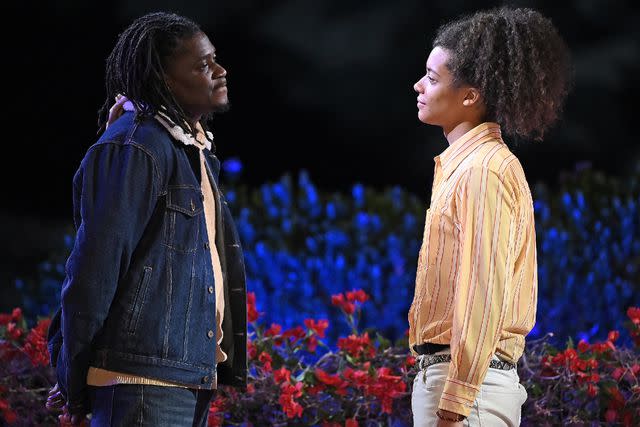
John Fleenor/ABC
“Contestants must be at least 18 years old to be considered for the show,” Detwiler and Teti say. Though there is a minimum age requirement, there is no maximum.
“So far, the youngest contestants have been season 1’s Logan (Jason Alden’s cousin) and season 2’s Travis (Neil deGrasse Tyson’s son), who were both 22 years old. The oldest have been season 2’s Jada (Dolly Parton's niece) who was 44 years old, and season 1’s M. Lamar (Laverne Cox's twin brother) who was 50 years old,” Detwiler and Teti say, teasing, “Could a future season potentially feature someone’s parent or grandparent? Oh, the stories they would have to tell…”
Contestants should be directly related to their celebrity relative
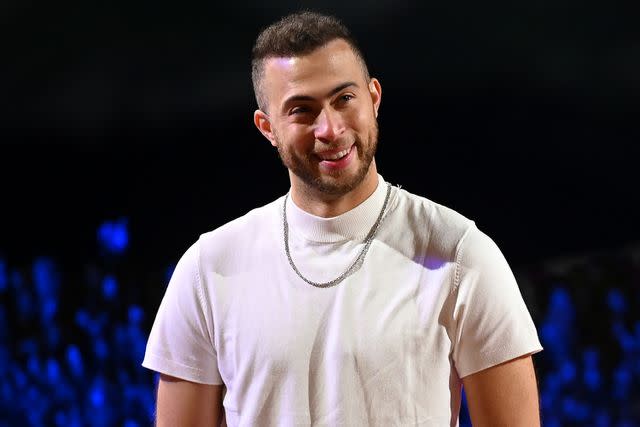
ABC/John Fleenor
Detwiler and Teti reveal that “distant or far-removed relatives (such as second cousins and beyond) are not considered" for the show's cast.
While “most contestants on the show have been directly related to their celebrity relative by blood, whether it be a sibling, parent, uncle/aunt, or cousin,” they note that half-siblings are also considered, such as Cole from season 2, who is Alicia Keys' half-brother.
Carly, the season 2 contestant who was eliminated in the first episode after her connection to Tom Hanks and Rita Wilson was revealed, was given an exception to tout her relationship to Hanks, her uncle by marriage. “In the case of Carly, her relation to Tom Hanks through marriage (to her aunt Rita) was accepted in consideration of her close relationship with her uncle from a very early age."
A contestant’s celebrity relative doesn’t have to be living
Though there are specific requirements prohibiting contestants with “distant or far-removed relatives,” Detwiler and Teti add that a contestant’s celebrity relative doesn’t have to be alive to be considered for the show.
“That was the case with Pepper Martin, whose grandfather Dean Martin passed away many years ago, but whose music and legendary status as an American icon continues to live on,” they note.
If a contestant is related to more than one celebrity, they can only select one as their relative
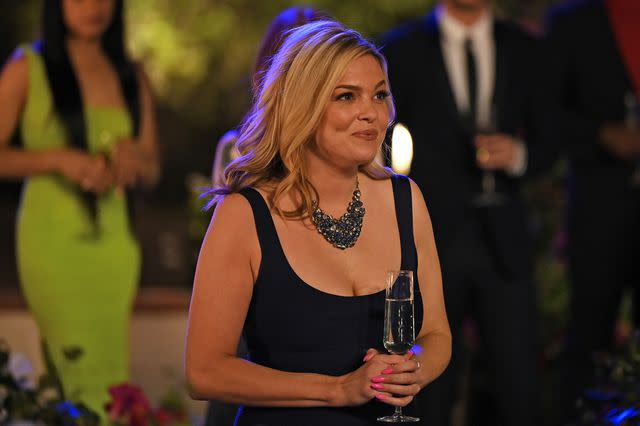
John Fleenor/ABC
“In the rare instance a contestant is related to more than one celebrity, they agree ahead of time as to which celebrity relative they will be playing as ‘related to’ during the competition,” Detwiler and Teti say. One major example: Carly was related to Rita Wilson by blood, but chose to play as the celebrity relative of her uncle through marriage Tom Hanks.
Contestants have to turn over their electronic devices before filming
Detwiler and Teti reveal that contestants are required to turn in their cell phones and electronic devices before filming to ensure the game is fair among contestants. “It would be unfair for any cast to be able to scour social media, make calls or otherwise try and research another contestant’s identity online,” Detwiler and Teti say.
“Contestants must succeed at gameplay, follow the rules, and rely only on their memory and personal discoveries throughout the competition to figure out the identity of another player’s celebrity relative. If they violate the rules, they can be eliminated from the competition,” they add, pointing out how Chuck Norris’ grandson Max was eliminated from the show in the season 1 premiere for secretly having a phone.
Contestants can't pick their roommates

John Fleenor/ABC
“Unlike other house competition shows, Claim to Fame contestants are assigned their bedrooms by producers,” Detwiler and Teti reveal, noting that “producers do not want the bedroom selection process becoming a distraction to the competition ... We want to get right to the good stuff!”
Contestants have to submit their “two truths and a lie” in advance
In the premiere episode, each contestant tells “two truths and a lie” to their castmates, which Detwiler and Teti reveal are actually provided ahead of time “in order to give [producers] time to verify and fact check.”
“This also gives contestants a chance to strategize their gameplay before heading into the competition,’ they add, noting how in season 1 Whoopi Goldberg’s granddaughter, Amara, lied that her celebrity relative’s biggest accolade was an adult video award.
Contestants don’t have to use their real name
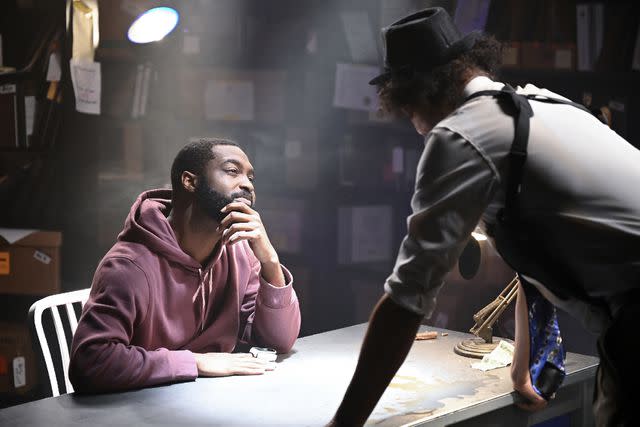
John Fleenor/ABC
In an effort to keep the game more interesting and challenging, contestants aren’t required to use their real name, (for example: season 1 contestant Jasmine decided to go by Kai).
The hosts don’t know the identities of the contestants either
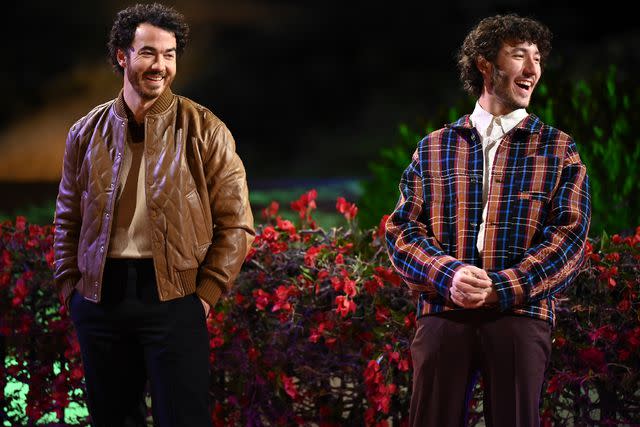
John Fleenor/ABC
When it comes to the contestants’ true identities, Detwiler and Teti reveal that co-hosts Kevin and Frankie Jonas are just as much “in the dark” as the cast. “Producers decided they wanted the hosts to play along and have genuine reactions when celebrity relatives are revealed in the ‘Guess Off’s,’” they note.
Contestants are allowed to spy on other contestants … to an extent
As shown on the show, spying and snooping on other contestants isn’t uncommon in the house. “Contestants must make sure they are ‘listening’ to any and all conversations — even if no one else knows or realizes they’re doing it,” Detwiler and Teti say.
Though they add that contestants aren’t allowed to go through another person’s private property, they add that it’s definitely fair game if “a contestant carelessly [leaves] their journal open out in the public for everyone to see their notes.”
Each contestant has the same amount of clues

John Fleenor/ABC
Detwiler and Teti say that “while it may seem as though the ‘clue wall’ and challenges provide more clues for some contestants than others, this is false.” The producers add that each contestant gets the “same number of clues” in the competition.
Not all clues have to be real clues
While each contestant has the same amount of clues, Detwiler and Teti note that there are some additional clues thrown in the mix as “red herrings” that are “meant to throw off contestants.”
“Sometimes, a red herring may be mistaken as a clue by contestants,” they continue. “When that happens, those mistakes can be crucial and create even more suspicion than the actual clues themselves, taking contestants down wild rabbit holes. But in some cases, these red herrings can actually lead to even more discoveries than the original clues that were intended or overlooked. That’s the magic of Claim to Fame!”
During the “guess-off,” contestants have to say a celebrity relative’s name correctly or they’ll be eliminated
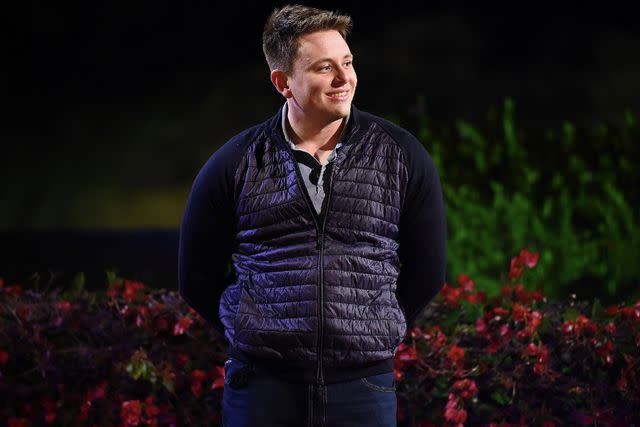
John Fleenor/ABC
When guessing someone’s celebrity relative, Detwiler and Teti note that the person has “one shot to say the name correctly — in its entirety and with the correct pronunciation — or they will be the one going home.”
Even the slightest mixup of a person’s middle and last name — like how Hugo almost guessed Neil Tyson deGrasse instead of Neil deGrasse Tyson in season 2 — could get you eliminated.
Contestants don’t immediately go home after they’re eliminated
One thing fans will be shocked to learn is that contestants don’t actually go home when they’re eliminated. Instead, Detwiler and Teti reveal that they’re “sequestered” until the finale films.
“They stay in a hotel until the finale, when they return to the house for one final bit of gameplay,” the producers explain. “Some sequestered players have had a lot of time to reflect and process info about other players, so when they are reunited with fellow cast-mates they often have a lot to tell!”
For more People news, make sure to sign up for our newsletter!
Read the original article on People.

